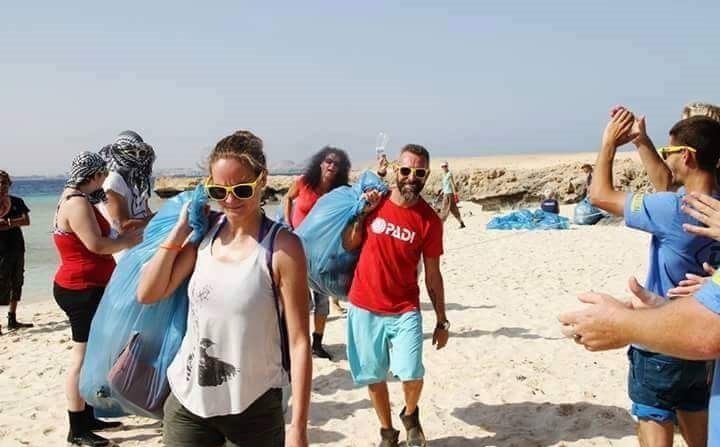UPDATE: Foreigners in Egypt Clean Up the Litter-Ridden Hurghada Beaches
Recent information has proven that was what previously suspected to be a group of foreigners cleaning the beaches of Hurghada on their own is not entirely true.

UPDATE: Evidently the posts circulating on the internet were not the whole story. The cleanup was organised by HEPCA. HEPCA is an NGO made up of international scientists and industry experts that are dedicated to the preservation and protection of the Red Sea. As a part of Earth Day 2 years ago they began to organize walks along the beach to clear it of refuse.
The pictures on social media are just a shot portraying some foreigners who were also accompanied by many Egyptians helping to save the precious ecosystem of the Red Sea. The pictures and their captions insinuated that Egyptians are filthy and in need of foreigners to clean up after them. Part of confusion could have resulted from the recently viral posts of Sharm El Sheikh being defiled by members of lower classes who left it in a sad state.
Previous article follows...
Several photos showing a group of foreigners volunteering in a collective effort to clean up the accumulated trash in a beach in Hurghada were posted on the Facebook page Observers and are rapidly going viral across social media. The tourists are seen picking up heaps of garbage, junk, and God knows what else bundled on the coast, and stocking them back in a huge pile of garbage bags.
The post raises questions about the governorate's negligence of beach conservation, and generally, Egyptians' attitudes towards littering and preserving the environment. In a time where campaigns like #ThisIsEgypt are initiated to help the decaying state of tourism in Egypt, filthy beaches are pushing foreigners and vacation-goers to put their holidays on hold – except that one tourist with OCD, he loved this – so they can enjoy their time.
Let's have a little science lesson here: you see, trash discarded in oceans, seas and beaches, particularly plastic and non-biodegradable materials, have been documented to harm marine animals. This, of course, leads to these animals' slow and painful death and mutation, which – and please bear with us here – impacts the ecosystem that you also happen to be a part of. You will die sooner or later if you don't pick up your own garbage. Simple as that.
We hope that there will be more continued state efforts to put an end to this, and that the surge of underwater sports and diving in Egypt raises awareness and passion for beach conversations, and sparks Egyptian community-based environmental movements and efforts to combat other harmful garbage-related behaviours and practices.
Trending This Week
-
Mar 29, 2025























